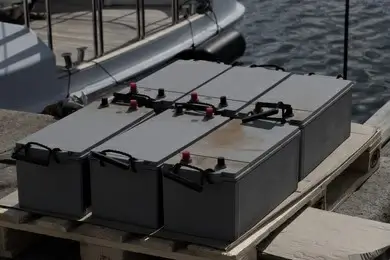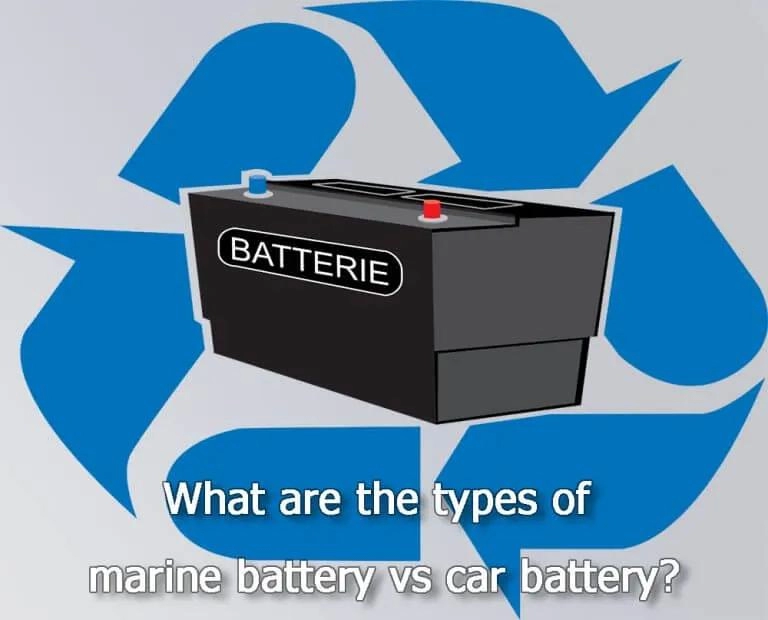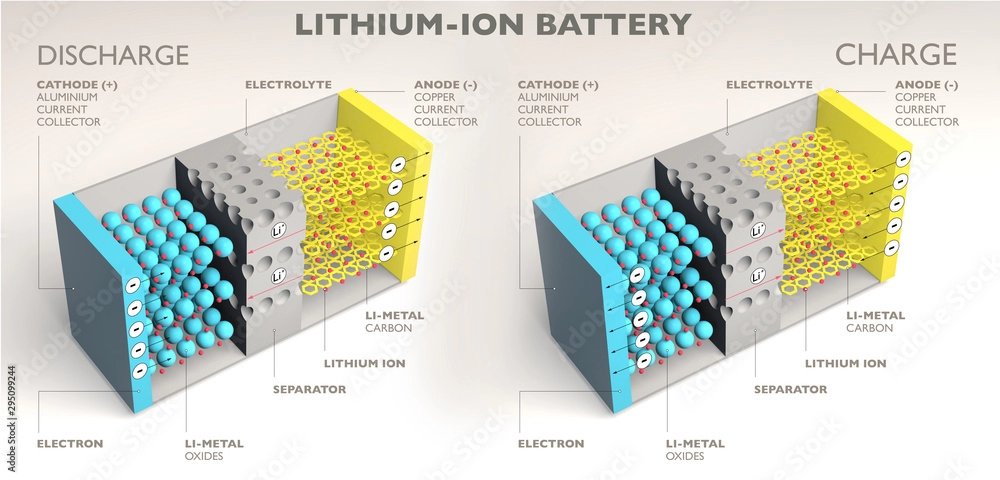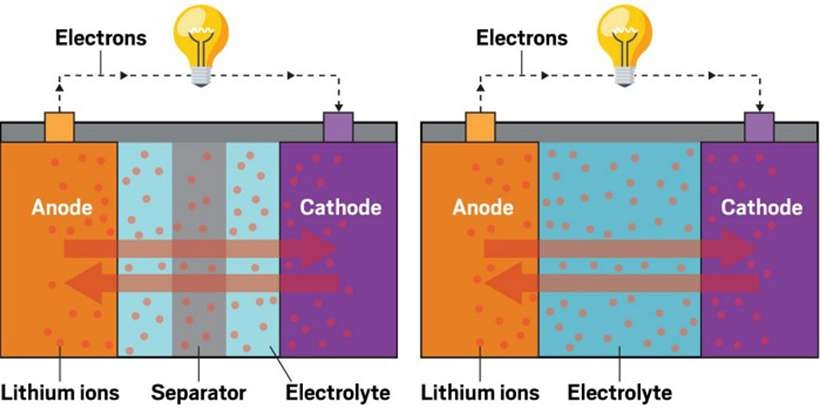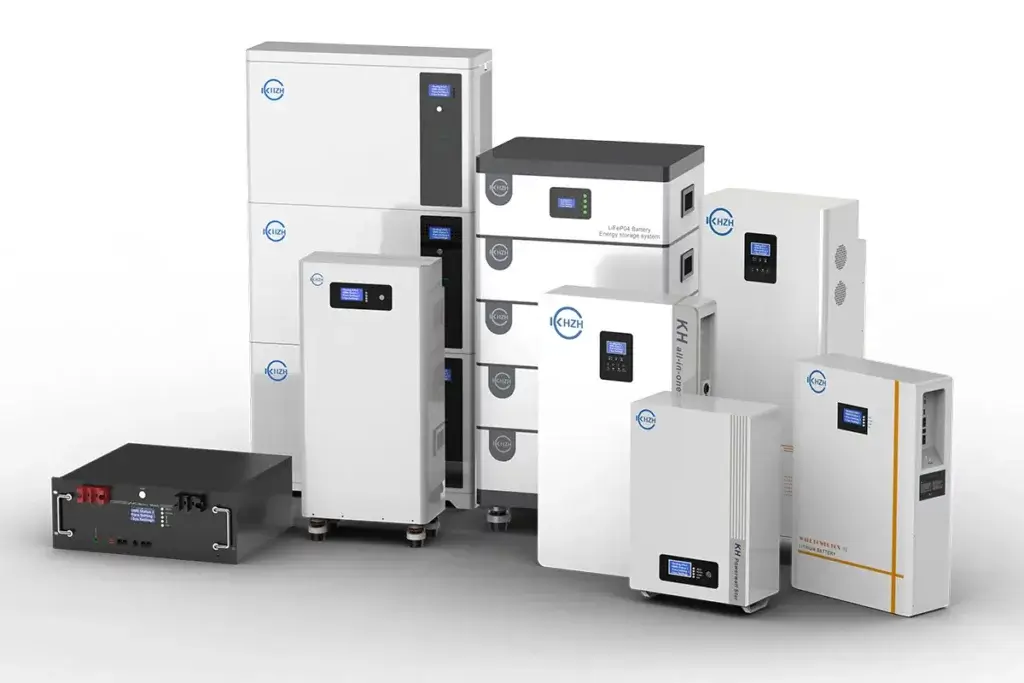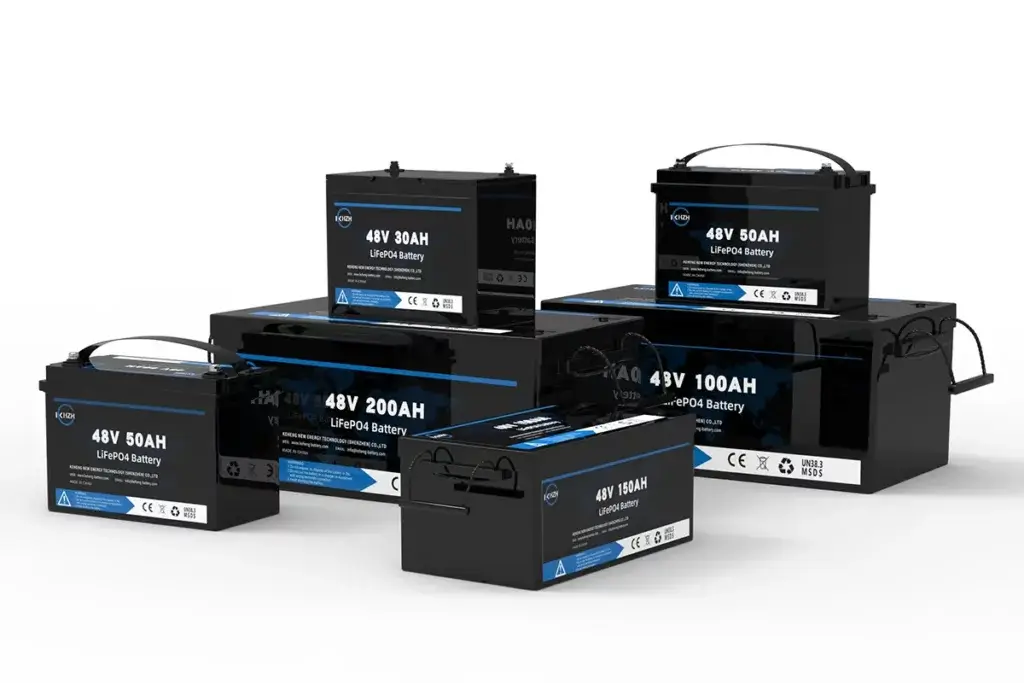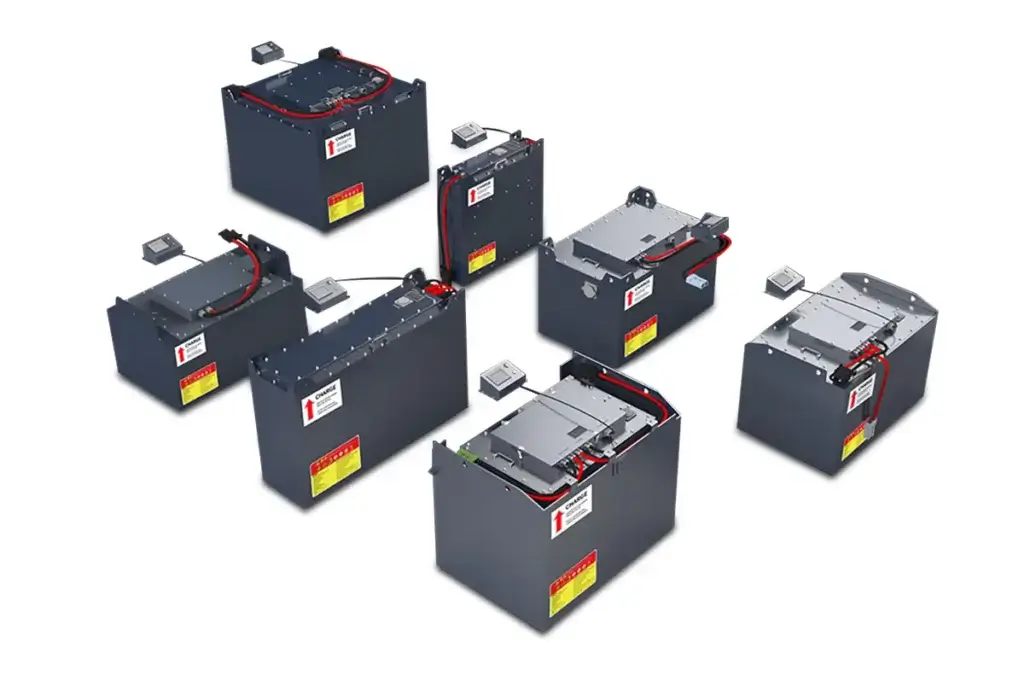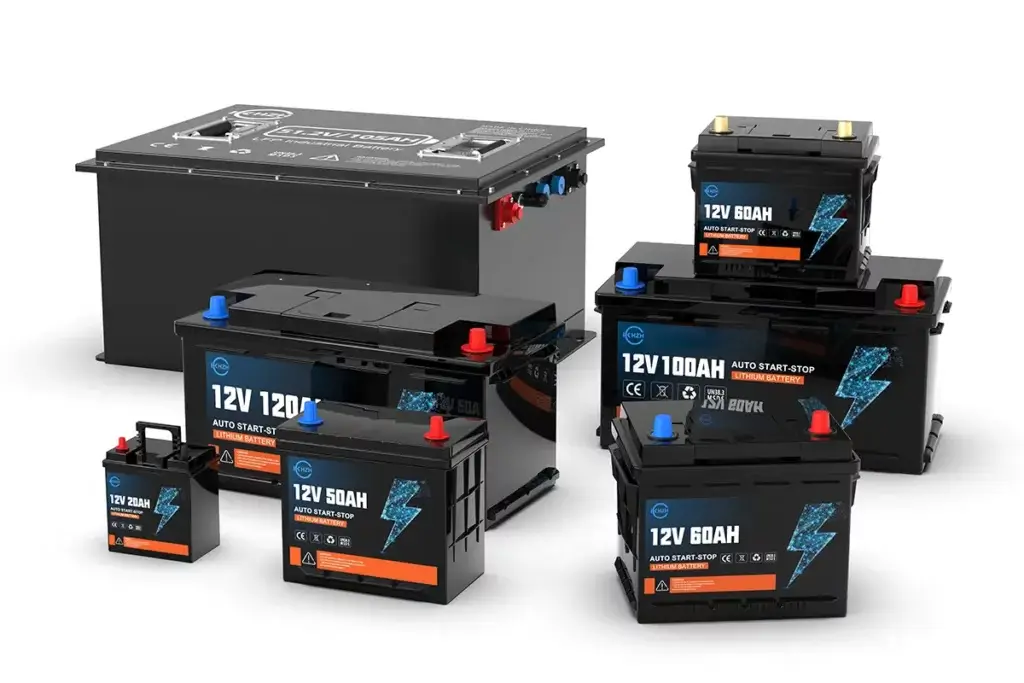Marine batteries and car batteries are both widely used, but they serve distinctly different purposes. While both provide electrical power, they are designed with different priorities in mind. This article will guide you through the key differences between marine and car batteries, helping you make an informed choice based on your specific needs.
Part 1: Marine Batteries
Marine batteries are specifically designed to meet the demands of marine environments. Unlike car batteries, which are primarily used to start engines, marine batteries are designed to provide a steady stream of power for extended periods. They are commonly used to power trolling motors, navigation systems, lighting, and other electrical equipment on boats.
Marine batteries are often deep-cycle, meaning they can discharge a significant portion of their capacity without damage. This feature ensures they can deliver reliable and consistent power, even under heavy loads for extended durations. Additionally, marine batteries are designed with thicker plates and more durable internal components to withstand harsh marine conditions, including moisture, vibration, and corrosion.
Part 2: Car Batteries
Car batteries, also known as automotive or starting batteries, are primarily used to start engines. These batteries provide a high burst of power to ignite the engine. Once the engine is running, the alternator takes over to power the vehicle’s electrical system and recharge the battery. Car batteries are not designed for deep discharge, and excessive discharging can shorten their lifespan.
Typically, car batteries are more affordable than marine batteries and have thinner plates. They are optimized for short bursts of high power, known as cranking amps (CA) or cold cranking amps (CCA), which measure the battery’s ability to start an engine in cold conditions, and is particularly important in cold weather conditions. Car batteries are not intended to withstand frequent deep discharges, as this can reduce their capacity and shorten their overall lifespan.
Part 3: Key Differences Between Marine and Car Batteries
Design and Construction
Marine batteries feature thicker plates and more robust internal components to withstand harsh marine environments. Car batteries, on the other hand, utilize thinner plates and focus on delivering a powerful burst of energy for engine starting.
Battery Capacity
Marine batteries typically have higher amp-hour (Ah) ratings, allowing them to provide consistent power over extended periods. In contrast, car batteries are designed for quick bursts of energy, especially during engine starting.
Cycling Capability
Marine batteries are designed for deep cycling, meaning they can be discharged and recharged multiple times without damage. Car batteries are not designed for deep cycling, and frequent deep discharges can significantly shorten their lifespan.
Reserve Capacity
Marine batteries often offer higher reserve capacity, which indicates the amount of time a battery can deliver a specified current before its voltage drops below a usable level. Car batteries typically have lower reserve capacity, as their design focuses on short bursts of power.
Vibration Resistance
Marine batteries are designed to withstand the constant vibration and impacts encountered in marine environments, ensuring their durability and performance. Car batteries can handle general driving conditions, but their vibration resistance may be weaker. Excessive shaking can lead to damage.
Corrosion Resistance
Marine batteries offer superior corrosion resistance to withstand the damaging effects of saltwater and other corrosive marine elements. Car batteries offer some corrosion protection, but it is not as robust as that of marine batteries.
Polarity
The positive and negative terminal positions on marine batteries may differ from those on car batteries, a factor to consider during installation.
By understanding these key differences, you can select the appropriate battery type for your needs, ensuring you get the performance you need, whether for land or water applications. For those interested in delving deeper into battery technology, including marine options, check out our A Comprehensive Guide to Selecting the Ideal Batteries for Trolling Boat Motors.
Car Batteries vs. Marine Batteries: A Detailed Comparison
When considering vehicle power solutions, it’s important to understand the differences between car batteries and marine batteries. Each is designed for a specific environment, making them suitable for distinct applications. Here, we will explore the key distinctions between car batteries, deep cycle batteries, and marine batteries.
Part 1: What is the Difference Between Car Batteries and Marine Batteries?
Both car batteries and marine batteries provide power, but they operate differently. Car batteries are designed to deliver a high burst of energy needed to start an engine, while marine batteries focus on providing steady power over a longer period. Marine batteries are typically designed to handle high current draws for longer periods, making them well-suited for applications like powering boats and RVs.
Car batteries are designed to quickly provide the surge needed for starting the engine, while marine batteries focus on providing continuous power. Additionally, marine batteries often have thicker plates and a more robust construction to withstand the harsh conditions of marine environments, such as saltwater corrosion.
Part 2: What is the Difference Between Car Batteries and Deep Cycle Batteries?
Car batteries are specifically designed for starting engines, providing a high current for a short period. They have thinner plates for quick discharge and recharge. On the other hand, deep cycle batteries are designed to provide a steady amount of power over a longer period. Their thicker plates are designed to withstand repeated charge and discharge cycles, making them well-suited for applications that require sustained energy output.
Deep cycle batteries allow for deep discharges without damaging the battery, while car batteries are prone to permanent damage if deeply discharged. For example, car batteries are ideal for short-term power needs like starting an engine, while deep cycle batteries are best suited for powering appliances, lights, or motors in boats, RVs, or solar power systems.
Part 3: What is the Difference Between Car Battery and Marine Battery Terminals?
Car battery terminals are typically smaller and more rounded, designed to fit standard vehicle connectors. In contrast, marine battery terminals are often larger and more rectangular, designed to accommodate the heavier-gauge cables used in marine applications.
Car batteries typically have one positive terminal (marked with a “+” sign) and one negative terminal (marked with a ” – ” sign). Marine batteries may have multiple terminals, allowing them to connect various accessories such as trolling motors, fish finders, or lights. This allows for easy connection of various accessories.
Additionally, marine battery terminals are often treated with corrosion-resistant materials like lead alloys or tin to protect them from common marine elements, including saltwater and moisture.
Part 4: Common FAQs About Using Marine Batteries, Car Batteries, and Deep Cycle Batteries
Can a marine battery be used in a car?
Yes, a marine battery can be used in a car, but it may not perform as well as a dedicated car battery. Marine batteries are designed to provide continuous power rather than a quick burst of energy, so they may not be ideal for starting your car engine.
Can a deep cycle battery be used in a car?
It is possible to use a deep cycle battery in a car, but it is not recommended for regular use. Deep cycle batteries are intended for prolonged, consistent power output, rather than the short, high-power bursts needed to start a car.
Can a car battery be used in a boat?
While it is possible to use a car battery in a boat, marine batteries are generally better suited for the demands of a marine environment. Marine batteries are designed to withstand the vibrations, moisture, and corrosion common in marine environments.
Are marine batteries better than car batteries?
Marine batteries are specifically designed for marine environments and provide reliable power over extended periods. However, car batteries are optimized for quickly starting engines, making them better suited for automotive use.
Can a marine battery be used in a golf cart?
Yes, marine batteries can be used in golf carts, especially if you need a battery that allows for longer operation between charges. Just make sure the marine battery’s voltage and capacity match the specifications required for your golf cart.
What else can marine batteries be used for?
Marine batteries can also be used in various other applications, such as powering RV appliances or solar power systems, due to their stable and long-lasting energy output.
Can Marine Batteries Be Used in Trucks?
Marine batteries can be used in trucks, but they may not provide the same level of performance as batteries designed specifically for automotive use. Marine batteries are built to endure harsh marine environments, which can affect their starting performance compared to standard truck batteries.
Related Articles
- Decoding Lithium Battery Costs: What Drives the Price?
This comprehensive pricing guide explores the key factors that influence lithium battery prices, trends, and future forecasts. - Liquid Metal Battery vs. Lithium Battery: A Detailed Comparison
This in-depth analysis compares liquid metal batteries and lithium batteries in terms of their characteristics, applications, advantages, disadvantages, and future potential. - Understanding LiPo Batteries: Capacity, Lifespan, and More
Get insights into LiPo batteries, including their capacity, energy density, cycle life, and essential tips for optimizing performance and avoiding common issues. - What is a U1 Battery?
Learn about U1 battery dimensions, types, differences, and maintenance tips. Determine whether AGM or lithium U1 batteries are better for your needs and learn how to make the right choice. - SLI Battery Explained: Types, Uses, and How They Work
Discover what an SLI battery is, how it works, its types, and its differences from AGM, EFB, and deep-cycle batteries. Plus, find important tips for battery maintenance.
